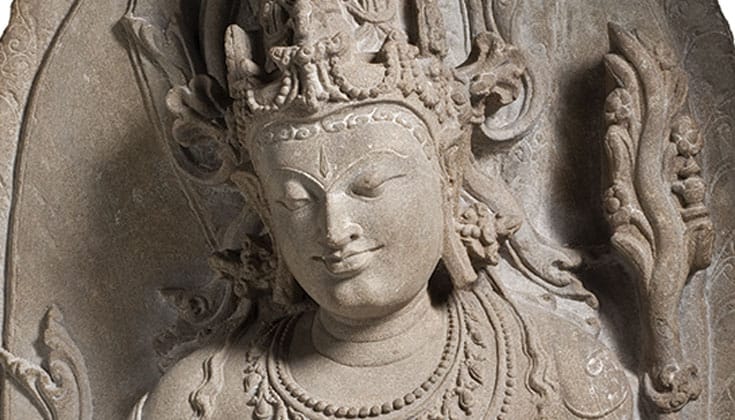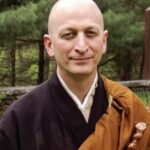“I beg your compassion. Please give me a way to liberation,” the student asked.
“Who is binding you?” replied the teacher.
“No one is binding me,” answered the student.
“Then why seek liberation?” responded the teacher.
In the Mahayana tradition, enlightened wisdom and selfless compassion are understood and realized as one reality. It is because of our realization into the emptiness of self-nature that we can let “uncaused compassion” shine forth. This compassion arises without the need or desire for recognition or reward. While intelligent and responsive, it is not attached to a final outcome. We can think of this as “moving freely within the buddhafield”—the realm of living beings dedicated to helping alleviate suffering for everyone.
The Buddha taught that the three essential trainings in the path are samadhi (single-minded concentration), prajna (experiential insight into the real nature of self, other, and things), and the moral precepts (compassion).
In the Zen tradition, all three are practiced and realized as one unified reality. This has deep and broad implications into how we understand and practice our meditation—not just on the cushion, but in each and every moment of our daily lives. It is there that the vital reality of the buddhafield is manifested.
When our compassion is skillful, we are able to offer something truly beneficial.
Most of us want to serve. We want to help others and be useful. But how do we do this? How can we truly be helpful in a world with so much pain, complexity, and confusion? How do we meet the good and evil in our world without falling into attachments and false views of good and evil? How can we care deeply without attachment?
One of the essential aspects of compassion is upaya, skillful means. When our compassion is skillful, we are able to offer something truly beneficial. Buddhism teaches that we learn about compassion and skillful means through our own spiritual journey—by meeting our own attachments and suffering with wisdom and loving-kindness. This becomes the basis for what we offer to others.
Skillful means are neither abstract nor conceptual. They are both earthy in their direct and immediate application and lofty in their desire for liberation. They allow us to practice effectively, free ourselves, and help others without arrogance or disempowerment.
By turning the light around and seeing with the uncontrived eye of wisdom, we realize the essential nature of things.
All of Buddhist practice can be understood as skillful means. We can learn how to bring skillful means into our daily practice at home and at work, and into our service toward people, the earth, and social and racial justice. In the Zen teachings, meditation is the skillful means through which we recognize, examine, and liberate the many forms of our suffering. By turning the light around and seeing with the uncontrived eye of wisdom, we realize the essential nature of things: “What is binding us after all? What is binding you?”
Meditation is where we learn to practice with compassion. It’s all too easy to resent and strike out against what appears to be causing our own pain: obsessive thoughts and entangled emotions. But it’s a mistake to believe that meditation is simply a concentration practice, and that if we can quiet the mind, then we will gain insight and become a more compassionate being. Meditation here needs to be understood more broadly as the cultivation and embodiment of buddha mind in all that we do.
Hand in hand with our formal meditation practice, we embody this wisdom in our everyday lives. There we test and refine our understanding, lest it become confined to the meditation seat. We also do this by working to alleviate the suffering arising out of all forms of injustice. This is the lifeblood of Buddhist practice, and what makes it a profound journey of realization and awakening. Most importantly, we do this by living our lives as the spiritual path itself. Life and practice are one.

